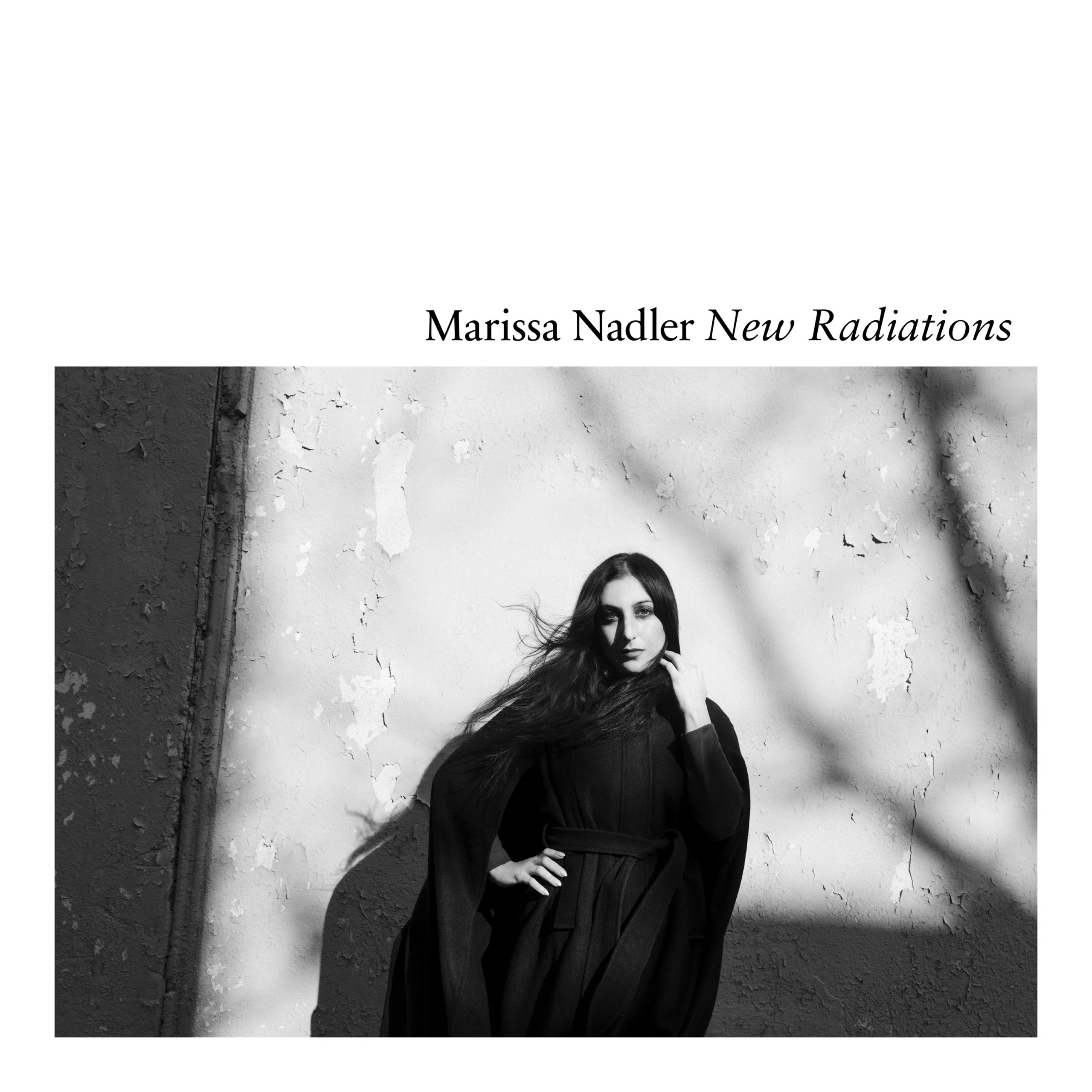
New Radiations
—
Release on 08 August 2025
—
Bella Union



The last time we heard from Marissa Nadler, she was soaring through The Path of the Clouds and its companion EP, The Wrath of the Clouds. Now, with her tenth full-length album, New Radiations, she returns with a raw, intimate, and hauntingly beautiful collection of eleven otherworldly songs.
From the first note, Nadler’s lush voice and intricate fingerpicking take center stage. Over dreamlike, solitary soundscapes—fuzzed-out distortion, Hammond organ, and ominous synthesizers—she layers Everly Brothers–style harmonies that elevate her vulnerability with depth and atmosphere. Each track unfolds like a short film, evoking a vivid emotional landscape where the personal and the surreal blur.
As a lyricist, Nadler traverses time and space, inhabiting a cast of drifting, searching characters. In the album’s opening track, she imagines herself as an aviator desperate to escape heartbreak, declaring that she’d “fly around the world just to forget you,” trying not to crash as she’s “blinded by sandstorms,” with her “little Cessna due west.” It’s a poignant and quietly dramatic start that sets the tone for the album’s themes of departure, reckoning, and survival.
On the title track, she evokes a sense of disorientation and spiritual fatigue, murmuring that “psychic vibrations and new radiations have taken their toll on me,” as she searches for closure, for a way to “break the glass, tie up the ending of the scene.” That push-pull between internal collapse and dreamy grace echoes throughout the album, particularly in the woozy doo-wop shimmer of “Bad Dreams Summertime,” where she braces for disaster as the world crumbles around her.
Throughout New Radiations, Nadler balances the sweetness of melody with lyrics that are often disquieting. In “Light Years,” she looks back on a faded connection, remembering how “back in the day, you were all the rage… you used to see light years inside her, you used to be right there beside her.” The nostalgia is laced with distance and loss, a recurring undercurrent in the record. Similarly, in “You Called Her Camellia,” the narrator laments a slow disappearance, protesting, “This wasn’t the deal! (Her fading away).” Meanwhile, “Smoke Screen Selene” carries a chilling warning: “Don’t you let her destroy you like I did,” a line that feels both intimate and mythic.
The album’s most chilling moment may come with “Hatchet Man,” a cosmic murder ballad where horror slips quietly into the narrative. In a sterile hotel room, the narrator recounts how “the angel made him do it and he made me watch—he thought no one would notice her gone,” before fleeing into the night. It’s a stark shift into gothic noir, but one that feels entirely at home in Nadler’s sonic universe.
“To Be the Moon King,” inspired by the father of modern rocketry, introduces a dreamer who writes codes backward in mirrors and tinkers with backyard rockets, determined to reach “Saturn’s rings, burning.” Nadler moves fluidly between first-person confession and character-driven storytelling, yet whether she’s channeling others or speaking for herself, her songs resonate with the same emotional clarity and gravity.
The closing track, “Sad Satellite,” offers a final moment of fragile illumination. In one of the album’s most affecting lines, she admits, “I mistook you for the sky,” capturing the ache of misrecognition, of reaching for something vast only to be left suspended in longing.
Produced by Nadler herself, the album was recorded in Nashville—both at Haptown Studios with longtime friend Roger Moutenot, and in her home studio. Mixed by Randall Dunn (Earth, Sunn O)))) New Radiations features immersive, subtle arrangements from frequent collaborator Milky Burgess: woozy slide guitars, dreamlike synths, and gritty riffs that swell and recede like the tide. In contrast to her previous two guest-heavy albums, this record offers a more personal, introspective vision.
Genre-defying yet unmistakably hers, New Radiations captures a rare stillness in the noise of the world—a moment of solemnity, vulnerability, and grace. It’s not just another chapter in her discography, but a defining statement of Marissa Nadler’s singular voice and artistic depth.